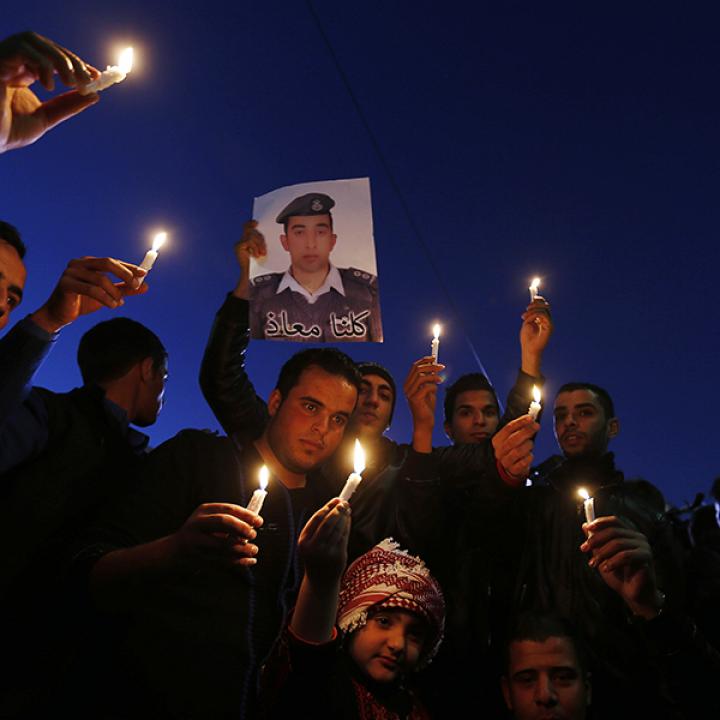

Even more than the murder of American and Japanese hostages, the Islamic State's horrific immolation of a fellow Muslim will backfire on the group.
Yesterday the Islamic State group (ISIS) released a grisly video of Jordanian First Lieutenant Moaz al-Kasasbeh being burned alive in a cage like something out of a cheap horror film. But this was real, and it may well mark the beginning of the end for a group that will eventually rot from the inside out.
This is by no means ISIS's first atrocity -- the group has been carrying out crucifixions, beheadings, mass murders, trafficking in women and systematic rape for some time now. Indeed, the group understands that the more barbaric its actions, the more media attention it will garner; it seems to believe this will lead to still greater flows of foreign fighters and financial supporters. That may have been the case before, but the grotesque murder of al-Kasasbeh may turn that tide.
Why? Because, as Secretary Kerry quickly underscored, al-Kasasbeh was not a Western journalist but "a devout Muslim, one of eight children, just months into married life, with the hopes of his own family in front of him." Around the world, people can identify with al-Kasasbeh; #JeSuisMoaz.
Even more than the murder of American and Japanese hostages, this act will backfire on ISIS. More than anything we in the West can say or do, more than any counter-radicalization campaign, it is ISIS's own actions that undermine its credibility and standing among fellow Muslims and blunt its magnetism.
This is a group primarily engaged in the wanton killing of fellow Muslims, including fellow Sunnis like al-Kasasbeh. Indeed, the group jails or murders its own foreign fighters who tire of the group's brutality and want to go home, and it extorts the local populations it purports to govern to fund its sectarian bloodlust.
More than anything else, two things will herald the beginning of the end for ISIS, and both are furthered by al-Kasasbeh's tragic death. First, the group is beginning to decay from within as reports emerge detailing its abuse of local populations; the stories of disappointed foreign fighters who return home to debunk the myths of this so called true "Caliphate"; and the anger of the vast majority of Muslims around the world reacting to the group's barbarism. Burning a fellow Muslim alive checks that box in a very graphic way.
Second, losses on the battlefield, such as the defeat at Kobane and the blows ISIS is surely about to suffer from Jordan and its allies, severely undermine the group's appeal. Success breeds followers, fighters, and funds -- it is the group's single greatest draw, both for radical true believers and "5 star jihad" followers on. Defeating ISIS on the battlefield will speed up that decay from within. Let it rot.
ISIS has publicly killed another man, burning him alive. Now is the time to double-down to ensure that the consequences of such actions begin to consume the so-called "Islamic State."
Matthew Levitt is the Fromer-Wexler Fellow and director of the Stein Program on Counterterrorism and Intelligence at The Washington Institute, and a Senior Fellow with George Washington University's Center for Cyber and Homeland Security.
CCHS Security Insights



